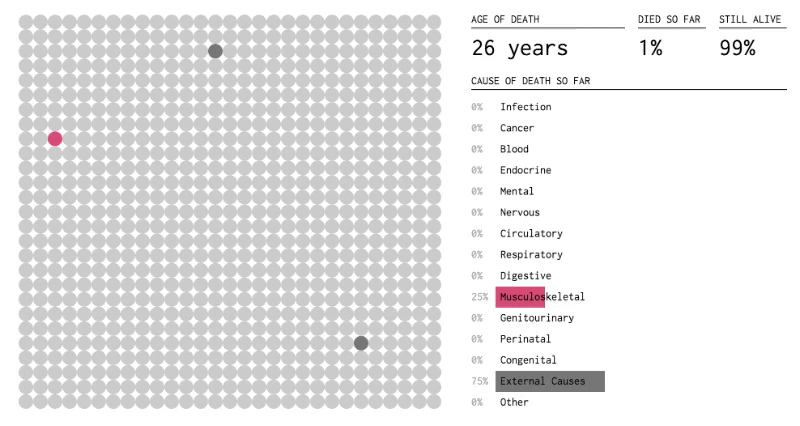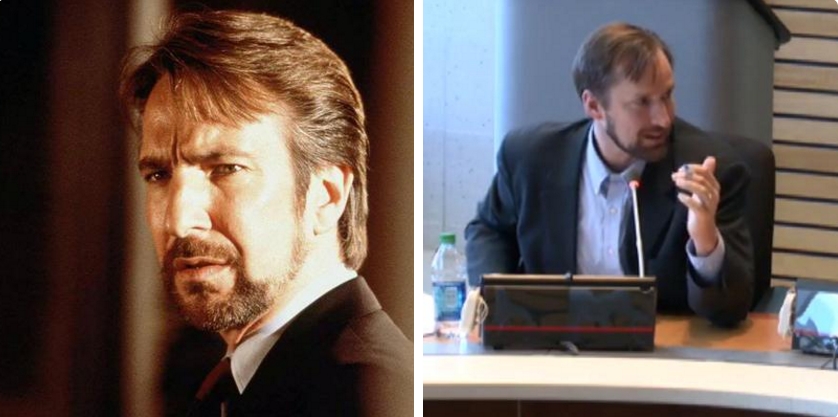Guest post by Jeff Mosenkis of Innovations for Poverty Action.

- If you thought your day was going to go well, Nathan Yau has an addicting simulator on how you will die (statistically).
- Buzzfeed data journalist John Templon crunched data to discover likely match fixing at high levels of professional tennis. He describes his methodology, essentially looking at last minute changes in betting odds in 26,000 matches. He found bets on 16 top players consistently shifting at the last minute, suggesting that some betters had inside information. He then ran 1 million simulations per player to test the likelihoods. Leaked documents would later confirm tennis authorities were conducting a similar investigation. FiveThirtyEight and others, however, haven't replicated all his findings using different data.
- A bizarre story from the University of Maryland shows some of the dangers of how research is funded and of bad press releases. The University issued a press release on an unpublished study suggesting that drinking a particular brand of chocolate milk helped reduce concussion-related symptoms and improve test scores in high school athletes. The manufacturer mentioned funded the study in part, and touted the study on their website. At least one school said they'd be buying that brand of milk for their athletes on the basis of the study. The Science of Us obtained what little documentation exists (a power point presentation), which showed many serious flaws in the design.
- Misleading press releases have often been found to be at the heart of bad science news, and at least one biologists thinks faulty press releases should be tracked and flagged, just as retractions are (also via Science of Us).
- There's a new book about the world's largest refugee camp. In Kenya, the Dadaab camp houses a population the size of Minneapolis.
- New working paper (PDF here) finds:
Using the rollout of the schistosomiasis control program in Nigeria as a quasi-experiment, we estimate that children who benefited from the disease control program were 16 percentage points more likely to be enrolled in school and have completed 0.642 more years of education compared to children who have not benefited of the program.
And RIP Alan Rickman whose last video was a clever YouTube fundraiser for Save the Children and Refugee Council.
However, when JJ Abrams inevitably reboots the Die Hard franchise, may we suggest World Bank Senior Economist David Evans?

(At least one person in the office thought both pictures were of the same person)

